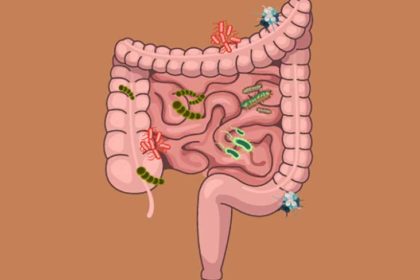
The gut microbiome is the “black box” of nutrition research, according to the new study “Rethinking Healthy Eating in Light of the Gut Microbiome.” We will never fully understand the science behind nutrition without understanding the bacteria living in the gut.
“Given the worldwide epidemic of diet-related chronic diseases, evidence-based dietary recommendations are fundamentally important for health promotion,” reads the study. “Despite the importance of the human gut microbiota for the physiological effects of diet and chronic disease etiology, national dietary guidelines around the world are just beginning to capitalize on scientific breakthroughs in the microbiome field.”
The study, published in the journal Cell, Host & Microbe, was conducted by researchers and scientists from Canada’s Department of Agriculture, Food & Nutritional Science; Ireland’s University of College Cork Centre for Vitamin D and Nutrition Research; and the APC Microbiome Ireland. It discusses “contemporary nutritional recommendations from a microbiome science perspective, focusing on mechanistic evidence that established host-microbe interactions as mediators of the physiological effects of diet.”
Though research on the microbiome and gut health has increased in the last decade, “there has been limited consideration of diet-microbiome-host interactions.” Researchers propose an “experimental framework that integrates the microbiome into nutrition research.”
Below are some of the challenges researchers found in creating a microbiome-focused diet.
More Fermented Food Research
Fermented foods are an excellent approach for microbiome restoration, the study notes. In individuals who have a diet rich in fermented foods, the organisms from the fermented foods are well-represented in their microbiota.
But more research is needed on fermented foods – especially non-dairy ones. Published studies link fermented foods to more favorable gastrointestinal health, lower risk of type 2 diabetes and cancer, increased microbiome diversity and weight management.
“Evidence from random control trials is extremely sparse, and fermented foods are just beginning to be recommended in dietary guidelines,” the study notes.
Lacking Dietary Guidelines
The study details different countries’ food recommendations and healthy eating guidelines in relation to the gut microbiome. Interestingly, though the regions have diverse food cultures, similarities were found: vegetables, fruit and grains should make up half a diet; whole grains should be prioritized over refined grains; animal protein and plant-based proteins should be consumed in small portions; foods high in sugar, salt and saturated fat should be limited or avoided.
But only one country – South Africa – mentions the gut microbiome.
Personalized Nutrition
Still, dietary guidelines are not a one-size-fits-all approach. There’s a greater need for personalized nutrition (also referred to as precision nutrition) because the gut microbiota is highly individualized. National dietary guidelines currently do not consider personalized nutrition.
As technology improves and microbiome sequencing increases, it’s possible a smart phone app could help the public monitor their diets, with recommendations personalized to their needs.
“Precision-nutrition approaches will depend on continued collaboration between nutrition and microbiome disciplines, and their population-wide implementation will require significant additional input from regulatory bodies, professional societies, and policymakers,” the study says.
Unknowns of Fermented Plant-Based Protein
There are “promising findings” regarding plant-based proteins’ interaction with the microbiome. Because these products are less digestible than animal-based proteins, they produce beneficial metabolites in the gut. However, the study points out more research is needed into these fermented alternative proteins that are fueling current innovation in alt meats.
Ancestral vs. Industrialized Diets
Modern diets – also known as industrialized diets – are far from those of our hunter-gatherer ancestors. Ancestral diets included more plants, higher dietary fiber and fewer refined carbs and sugar. The chronic disease epidemic, researchers note, can be attributed to modern diets being “evolutionarily mismatched with human physiology.”
“Evolutionary considerations also lay the foundation for microbiome restoration strategies,” the study continues. “Although it will likely be impossible, and perhaps not advisable, to return microbiomes to their ancestral states, there is heightened interest in the development of microbiome restoration strategies that re-establish health-related functional characteristics.
